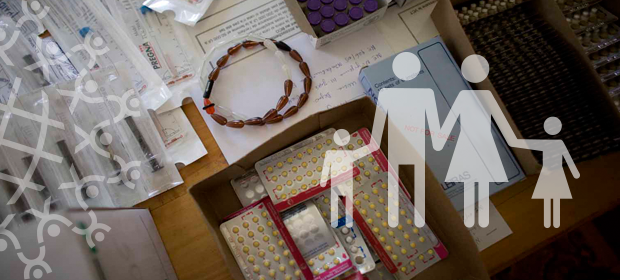Where We Work
See our interactive map


This post originally appeared in the Huffington Post:So often when we sing the praises of family planning, we go straight to applauding its health benefits: all the healthier babies and children, the hundreds of thousands of women who survive childbirth, and the millions of abortions prevented.
Family planning has changed the world for us all over the past few decades. But better health isn't the only advantage. There's another, though we in the global health field have often been hesitant about lauding it too loudly.
I'm talking about the relationship between family planning to prosperity.
These three elements—health, family size, and prosperity—are irrevocably intertwined.
The fiscal benefits for countries with robust family planning programs are huge. As more people than ever make the transition from large families and short lives to smaller families and longer lives, we're reminded that these three elements—health, family size, and prosperity—are irrevocably intertwined.
Part of this is due to a phenomenon called the demographic dividend, and this is how it works: After a period of low fertility in a population (such as when modern contraceptives enter the picture, and women and families begin choosing to have fewer children), there is a window of time during which the number of working-age adults grows faster than the number of nonworking-age people who depend upon them. If a country has its ducks in a row (for instance, by making sure there are enough jobs available for these working-age adults), it can take advantage of this window by growing its economy, freeing up resources, and using them to meet other pressing needs.
The results can be greater access to education and income for women, and higher quality of life for everyone.
Family planning is a key that can open this window of opportunity. And this type of equality among nations is precisely what we aspire to in global development. So shouldn't we be shouting about the demographic dividend from the rooftops and helping countries prepare to take full advantage of it?Yes, particularly in West Africa, where countries have a lot of catching up to do.
But we've long avoided doing so, largely because health is easier and less controversial to talk about than population dynamics. There's nothing contentious about improving health for women and babies, for example. On the other hand, some skeptics still oppose family planning for a variety of reasons—on religious grounds, perhaps, or because they see it as a foreign imposition from the West to control the populations of poor countries.
This is a moment of rare opportunity.
But it's time to start talking about the demographic dividend so that more countries can enjoy the health and fiscal benefits of family planning. This is a moment of rare opportunity, because:
Let's take advantage of this moment.
There should be no controversy around this investment in our futures.
We at IntraHealth International and in the global health community must focus not only on getting young people involved and making sure women and girls have access to education, health care, and equal opportunities for employment; we must also help high-level policy-makers and other stakeholders understand the great demand for family planning and advocate to them to take full advantage of the window of opportunity the demographic dividend opens when fertility rates decline, new jobs are created, and economies prosper. (I'll be talking more about this in November at the International Conference on Family Planning in Indonesia.)
Family planning is one of the smartest investments we can make. And as Melinda Gates has said, there should be no controversy around this investment in our futures. It will help countries that have been receiving aid become independent and autonomous faster, which means less need for international development assistance.
It makes health sense. It makes economic sense. And we should certainly not shy away from that.
Get the latest updates from the blog and eNews




